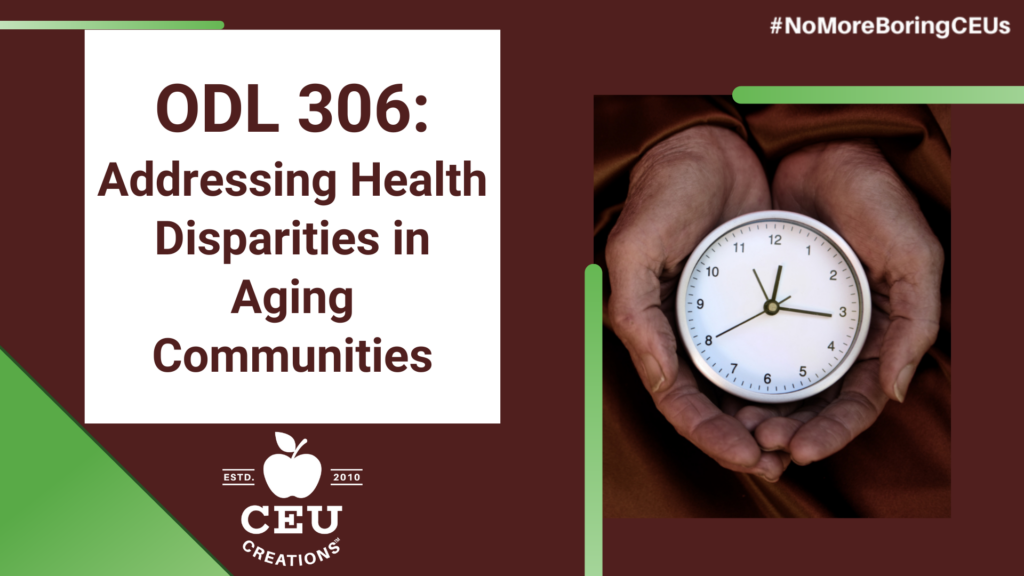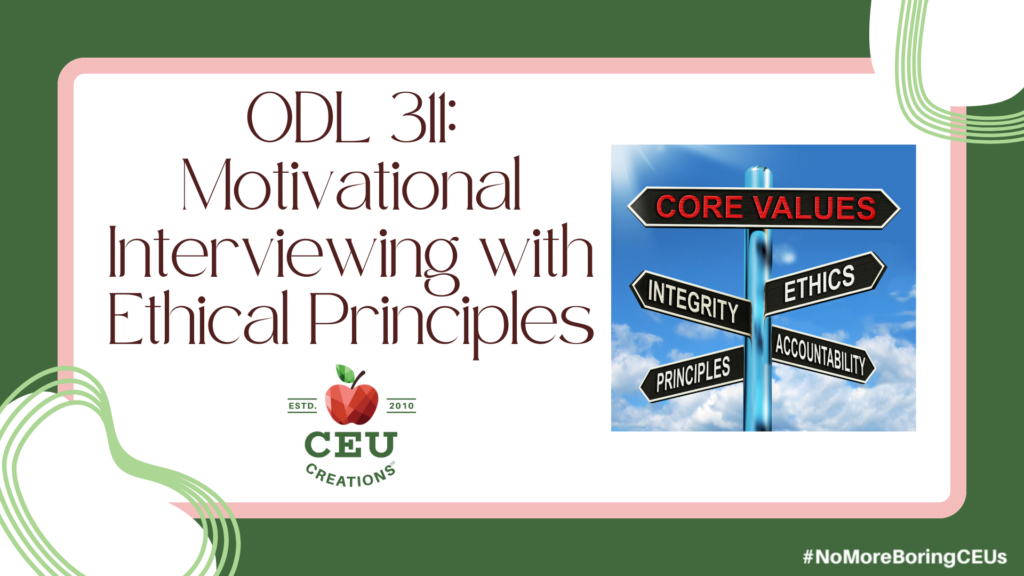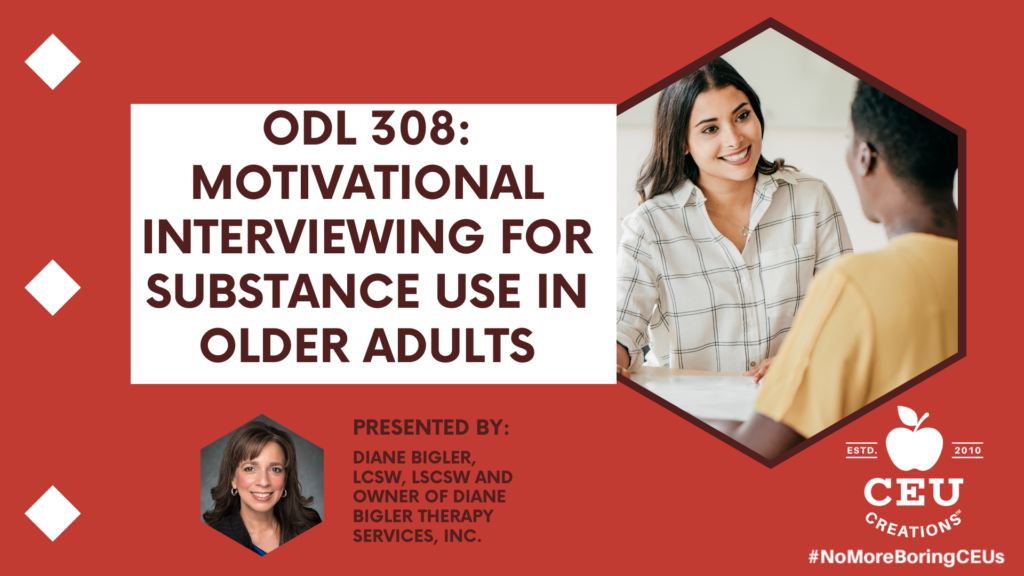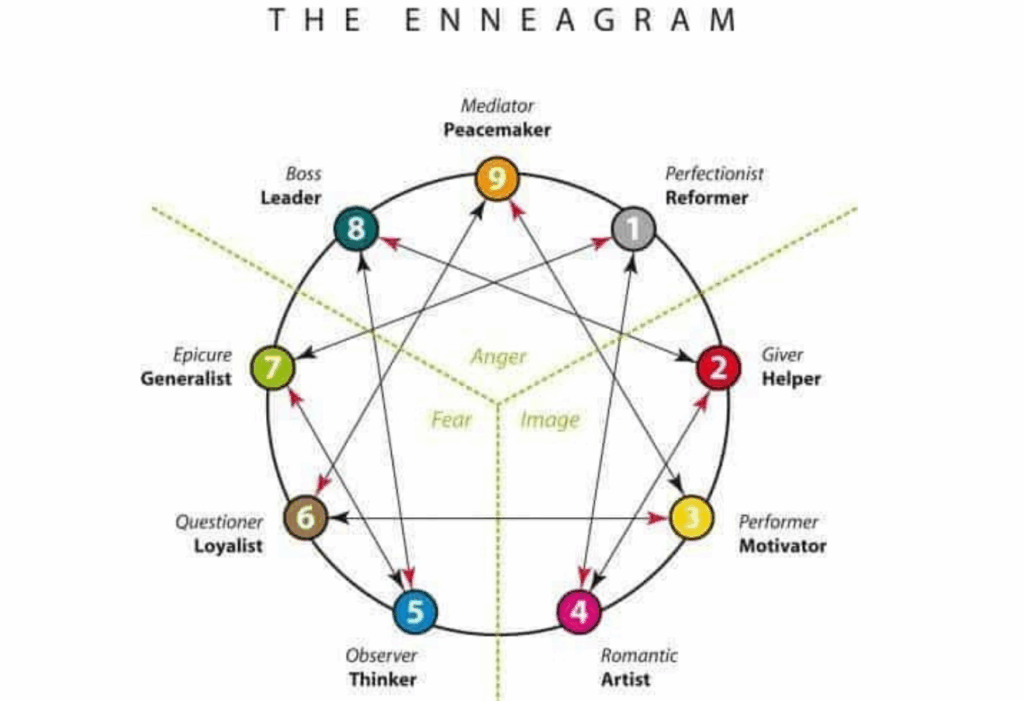
Please make sure to check with your own state board to ensure the transferability of CE credit for an asynchronous course. Some state boards may place restrictions regarding the modality of training required for ethics credits to be awarded. If this training indicates ethics credits are available, please verify that your state allows them to be earned through an on-demand course format.
6 CREDIT HOURS APPROVED FOR:
Social Workers
ASWB ACE – 6 Clinical CE Credits
New York State Education Department’s State Board for Social Work – 6 Contact Hours
Psychologists
APA – 6 CE Credits
Counselors
NBCC ACEP – 6 Contact Hours
New York State Education Department’s State Board for Mental Health Practitioners – 6 Contact Hours
Substance Abuse Counselors
NAADAC – 6 Contact Hours
Nurses
California Board of Registered Nursing – 6 Contact Hours
Case Managers
CCMC – 6 CE Contact Hours
Created On: 1/28/25
Target Audience:
This course is targeted for social workers, psychologists, counselors, nurses and case managers.
Counselor Skill Groups:
4. Counseling Services
6. Case Management
Overview:
In this engaging training, Thomas Walsh will demystify misconceptions about Autism Spectrum Disorder (ASD) and improve your diagnostic skills by distinguishing ASD from similar conditions. Learn effective techniques for psychotherapy with ASD patients, accommodating their unique needs using methods like CBT and Motivational Interviewing. Additionally, Riena Kain will help participants discover the importance of a family-based approach in treating ADHD, as recommended by the American Academy of Pediatrics and the American Academy of Child and Adolescent Psychiatry. This training is designed to enhance your expertise in supporting neurodiverse individuals, empowering you to make a significant impact in their therapeutic journeys.
Course Objectives:
By the end of the session, the participant will be able to:
- Examine misconceptions about the causation of Autism Spectrum Disorder (ASD).
- Identify criteria for diagnosing Autism Spectrum Disorder (ASD).
- Develop techniques to improve therapeutic outcomes for patients with Autism Spectrum Disorder (ASD).
- Explain the reasons for implementing a family-based approach in the treatment of ADHD.
- Describe the diagnosis of ADHD and its impact on executive functioning skills.
Presenters:
Thomas Walsh MSW LISW-CP/s
Thomas Walsh is a Licensed Independent Social Work Clinical Practitioner and Supervisor. He has been working in the field of mental health for over 24 years. He graduated from Bridgewater State University in 1995 with a bachelor’s degree in psychology and a minor in sociology. Mr. Walsh attended Salem State University and graduated with a Master of Social Work in 1998. After graduation, Mr. Walsh worked as a student for Dr. Salvatore Minuchin for 4 months as part of a small project to teach new therapists mastery of Structural Family Therapy. Early in his career, he focused on working with children with autism in residential settings. Over the course of his career, Mr. Walsh has been licensed in three states and served the field of social work in a variety of sectors, including private, public, for-profit, and not-for-profit, and with a variety of age groups as a clinician, team leader, program director, residential director, and county director. He is currently working for the Department of Mental Health and specializes with EMDR and Trauma Informed Therapy for First Responders and their families. He is also one of the State Department of Mental Health trainers and consultants for motivational Interviewing. Over the course of his career, Mr. Walsh has led public trainings on topics such as assessing risk, working with ASD populations, and motivational interviewing. Most Recently, Mr. Walsh has begun supervising social workers who are working towards independent clinical licensure, and offering consultation services for licensed clinicians in private practice.
Riena Kain, LISW-CP, LSCSW, ADHD-CCSP
Riena is a graduate of Upper Iowa University with a dual-major bachelor’s degree in psychology and human services and a master’s degree in social work from Washburn University. Riena is an LISW-CP in South Carolina and a LSCSW in Kansas. Riena also holds an ADHD-Certified Clinical Services Provider title. She is a wife and mother who loves to travel, be in nature and spend time with her dogs and a good book. Riena has over 12 years of experience in working with at-risk youth and adolescents. Her experience spans from child welfare social work, school-based therapy, and private practice. It is her hope to share her passion for ADHD with you today as we work toward growing our competency on a complex diagnosis.

























